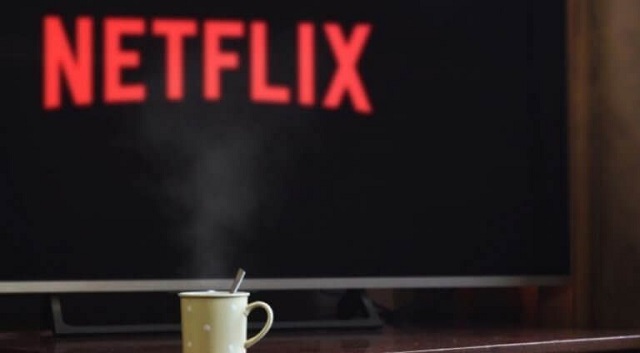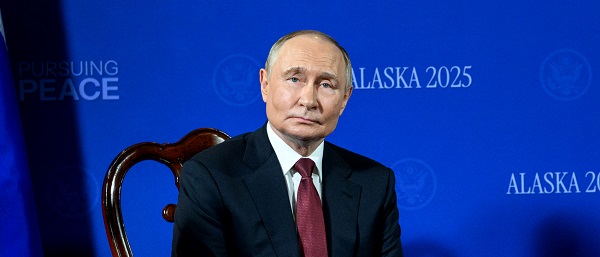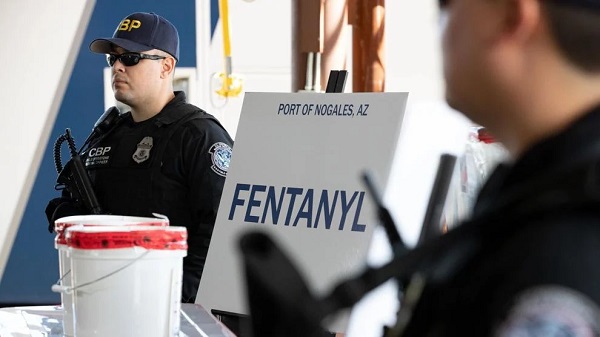Business
Netflix in Canada—All in the name of ‘modernizing’ broadcasting: Peter Menzies

From the MacDonald Laurier Institute
By Peter Menzies
Canada’s content czars are stuck in the past and trying to drag everyone back with them
Next week, the Canadian Radio-television and Telecommunications Commission (CRTC) will go live with its efforts to wrestle the internet and those who stream upon it into submission. Whether it fully understands the risks remains unclear.
There are 127 parties scheduled to appear before a panel of commissioners at a public hearing in Gatineau starting November 20. The tone-setting opening act will be Pierre-Karl Peladeau’s always-scrappy Quebecor while the UFC will throw the final punches before the curtain drops three weeks later.
The list of presenters consists mostly of what those of us who have experienced these mind-numbing hearings refer to as “the usual suspects”—interests whose business plans are built around the Broadcasting Act and the requirements of related funding agencies.
The largest Canadian companies will ask the CRTC to reduce its demands upon them when it comes to feeding and watering Big Cancon: the producers, directors, actors, writers, and other tradespeople who make certified Canadian content.
Quebecor, for instance, will be arguing for its contribution to be reduced from 30 percent of its revenue to 20 percent—a draw it proposes be applied to designated streamers. More money from foreign companies and less from licensed domestic broadcasters will be a recurring theme.
But there will also be a new slate of actors—those with business models designed to entertain and attract consumers in a free market—who will be staring down the barrel of CRTC Chair Vicky Eatrides’ stifling regulatory gun for the first time.
Disney+ is set to take the stage on November 29. Meta, the Big Tech bete noire that refused to play along with the Online News Act, is up on December 5.
But the big day will almost certainly be November 30 when Netflix locks horns with the Commission and what appear to be its dangerously naive assumptions.
More than half the streamer’s 30-page submission is dedicated to detailing what it is already contributing to Canada.
Some examples:
- $3.5 billion in investment;
- Thousands of jobs created;
- Consumers are 1.8 times more likely to watch a Canadian production on Netflix than they are on a licensed TV network;
- Le Guide de la Famille Parfaite—one of many Quebec productions it funded—was in Netflix’s global top 10 for non-English productions for two weeks.
Netflix is insisting on credit for what it already contributes. It has no interest in writing a cheque to the Canada Media Fund and takes serious umbrage with the CRTC’s assumption it will.
“The (hearing) notice could be understood to suggest that the Commission has made a preliminary determination to establish an ‘initial base contribution’ requirement for online undertakings,” Netflix states in its submission. “The only question for consideration would appear not to be whether, but rather what funds would be the possible recipients of contributions.
“Netflix submits that this is not an appropriate starting point.”
It gets worse. The CRTC is considering applying some of the non-financial obligations it imposes on licensed broadcasters such as CTV and Global to the streaming world.
Executive Director of Broadcasting Scott Shortliffe told the National Post recently that “Netflix is clearly producing programming that is analogous…to traditional broadcasters” and that it could be expected to “contribute” in terms of the shape of its content as well as how it spends its money.
In other words, the CRTC’s idea of “modernizing” broadcasting appears heavily weighted in favour of applying its 1990s way of doing things to the online world of 2023.
If that’s the case, the Commission is entirely unprepared to deal with the harsh truth that offshore companies don’t have to play by its rules. For decades, primary CRTC hearing participants have been dependent on the regulator. In the case of broadcasters like CTV and cable companies such as Rogers, their existence is at stake. Without a license, they are done. Which means they have to do what the Commission wants. But if the regulatory burden the CRTC places upon the offshore streamers doesn’t make business sense to them, they are free to say, “Sorry Canada, the juice just isn’t worth the squeeze. We’re outta here.”
This is most likely to occur among the smaller, niche services at the lower end of the subscription scale. The CRTC has to date exempted only companies with Canadian revenues of less than $10 million. Any company just over that line would almost certainly not bother to do business in Canada —a relatively small and increasingly confusing market—if the regulatory ask is anything close to the 20 percent commitment being suggested.
Ditto if the CRTC goes down the road Shortliffe pointed to. It would be absurd to impose expectations on unlicensed streamers that are similar to those applied to licensed broadcasters. For the latter, the burden is balanced by benefits such as market protection granted by the CRTC.
For streamers, no such regulatory “bargain” exists. Too much burden without benefits would make it far cheaper for many to leave and sell their most popular shows to a domestic streamer or television network.
The Online Streaming Act (Bill C-11), which led to this tussle, was originally pitched as making sure web giants “contraibute” their “fair share.”
So, as it turns out, was the Online News Act (Bill C-18).
That legislation resulted in Meta/Facebook getting out of the news business and Google may yet do the same. As a consequence, news organizations will lose hundreds of millions of dollars. Many won’t survive.
Eatrides and her colleagues, if they overplay their hand, are perfectly capable of achieving a similarly catastrophic outcome for the film and television industry.
Peter Menzies is a Senior Fellow with the Macdonald-Laurier Institute, a former newspaper executive, and past vice chair of the CRTC.
Business
Major tax changes in 2026: Report

The Canadian Taxpayers Federation released its annual New Year’s Tax Changes report today to highlight the major tax changes in 2026.
“There’s some good news and bad news for taxpayers in 2026,” said Franco Terrazzano, CTF Federal Director. “The federal government cut income taxes, but it’s hiking payroll taxes. The government cancelled the consumer carbon tax, but it’s hammering Canadian businesses with a higher industrial carbon tax.”
Payroll taxes: The federal government is raising the maximum mandatory Canada Pension Plan and Employment Insurance contributions in 2026. These payroll tax increases will cost a worker up to an additional $262 next year.
For workers making $85,000 or more, federal payroll taxes (CPP and EI tax) will cost $5,770 in 2026. Their employers will also be forced to pay $6,219.
Income tax: The federal government cut the lowest income tax rate from 15 to 14 per cent. This will save the average taxpayer $190 in 2026, according to the Parliamentary Budget Officer.
Carbon taxes: The government cancelled its consumer carbon tax effective April 1, 2025. However, the government still charges carbon taxes through its industrial carbon tax and a hidden carbon tax embedded in fuel regulations.
The industrial carbon tax will increase to $110 per tonne in 2026. While the government hasn’t provided further details on how much the industrial carbon tax will cost Canadians, 70 per cent of Canadians believe businesses pass on most or some of the cost of the tax to consumers, according to a Leger poll.
Alcohol taxes: Federal alcohol taxes are expected to increase by two per cent on April 1, 2026. This alcohol tax hike will cost taxpayers about $41 million in 2026-27, according to industry estimates.
First passed in the 2017 federal budget, the alcohol escalator tax automatically increases excise taxes on beer, wine and spirits every year without a vote in Parliament. Since being imposed, the alcohol escalator tax has cost taxpayers about $1.6 billion, according to industry estimates.
“Canadians pay too much tax because the government wastes too much money,” Terrazzano said. “Canadians are overtaxed and need serious tax cuts to help make life more affordable and our economy more competitive.
“Prime Minister Mark Carney needs to significantly cut spending, provide major tax relief and scrap all carbon taxes.”
You can read the CTF’s New Year’s Tax Changes report here.
Business
Inflation Reduction Act, Green New Deal Causing America’s Energy Crisis


From the Daily Caller News Foundation
By Greg Blackie
Our country is facing an energy crisis. No, not because of new demand from data centers or AI. Instead, it’s because utilities in nearly every state, due to government imposed “renewable” mandates, self-imposed mandates, and the supercharging of the Green New Scam under the so-called “Inflation Reduction Act,” have been shutting down vital coal resources and building out almost exclusively intermittent and costly resources like solar, wind, and battery storage.
President Donald Trump understands this, and that is why on day one of his administration he declared an Energy Emergency. Then, a few months later, the President signed a trio of Executive Orders designed to keep our “beautiful, clean coal” burning and providing the reliable, baseload, and affordable electricity Americans have benefitted from for generations.
Those orders have been used to keep coal generation online that was slated to shut down in Michigan and will potentially keep two units operating that were scheduled to shut down in Colorado this December. In Arizona, however, the Cholla Power Plant in Navajo County was shuttered by the utility just weeks after Trump explicitly called out the plant for saving in a press conference.
Dear Readers:
As a nonprofit, we are dependent on the generosity of our readers.
Please consider making a small donation of any amount here.
Thank you!
Unlike states with green mandates, Arizona essentially has none. Instead, our utilities, like many around the country, have self-imposed commitments to go “Net Zero” by 2050. To meet that target, they have planned to shut down all coal generation in the state by 2032 and plan to build out almost exclusively solar, wind, and battery storage to meet an expected explosive growth in demand, at a cost of tens of billions of dollars. So it is no surprise that like much of the rest of the country, Arizona is facing an energy crisis.
Taking a look at our largest regulated utilities (APS, TEP, and UNS) and the largest nonprofit utility, SRP, future plans paint an alarming picture. Combined, over the next 15 years, these utilities expect to see demand increase from 19,200 MW to 28,000 MW. For reference, 1,000 MW of electricity is enough to power roughly 250,000 homes. To meet that growth in demand, however, Arizonans will only get a net increase of 989 MW of reliable generation (coal, natural gas, and nuclear) compared to 22,543 MW (or nearly 23 times as much) of intermittent solar, wind, and battery storage.
But what about all of the new natural gas coming into the state? The vast majority of it will be eaten up just to replace existing coal resources, not to bring additional affordable energy to the grid. For example, the SRP board recently voted to approve the conversion of their Springerville coal plant to natural gas by 2030, which follows an earlier vote to convert another of their coal plants, Coronado, to natural gas by 2029. This coal conversion trap leaves ratepayers with the same amount of energy as before, eating up new natural gas capacity, without the benefit of more electricity.
So, while the Arizona utilities plan to collectively build an additional 4,538 MW of natural gas capacity over the next 15 years, at the same time they will be removing -3,549 MW (all of what is left on the grid today) of coal. And there are no plans for more nuclear capacity anytime soon. Instead, to meet their voluntary climate commitments, utilities plan to saddle ratepayers with the cost and resultant blackouts of the green new scam.
It’s no surprise then that Arizona’s largest regulated utilities, APS and TEP, are seeking double digit rate hikes next year. It’s not just Arizona. Excel customers in Colorado (with a 100% clean energy commitment) and in Minnesota (also with a 100% clean energy commitment) are facing nearly double-digit rate hikes. The day before Thanksgiving, PPL customers in Rhode Island (with a state mandate of 100% renewable by 2033) found out they may see rate hikes next year. Dominion (who has a Net Zero by 2050 commitment) wanted to raise rates for customers in Virginia by 15%. Just last month, regulators approved a 9% increase. Importantly, these rate increases are to recover costs for expenses incurred years ago, meaning they are clearly to cover the costs of the energy “transition” supercharged under the Biden administration, not from increased demand from data centers and AI.
It’s the same story around the country. Electricity rates are rising. Reliability is crumbling. We know the cause. For generations, we’ve been able to provide reliable energy at an affordable cost. The only variable that has changed has been what we are choosing to build. Then, it was reliable, dispatchable power. Now, it is intermittent sources that we know cost more, and that we know cause blackouts, all to meet absurd goals of going 100% renewable – something that no utility, state, or country has been able to achieve. And we know the result when they try.
This crisis can be avoided. Trump has laid out the plan to unleash American Energy. Now, it’s time for utilities to drop their costly green new scam commitments and go back to building reliable and affordable power that generations to come will benefit from.
Greg Blackie, Deputy Director of Policy at the Arizona Free Enterprise Club. Greg graduated summa cum laude from Arizona State University with a B.S. in Political Science in 2019. He served as a policy intern with the Republican caucus at the Arizona House of Representatives and covered Arizona political campaigns for America Rising during the 2020 election cycle.
-

 Censorship Industrial Complex19 hours ago
Censorship Industrial Complex19 hours agoDeath by a thousand clicks – government censorship of Canada’s internet
-

 Alberta22 hours ago
Alberta22 hours agoSchools should go back to basics to mitigate effects of AI
-

 International1 day ago
International1 day agoAt Least 15 Killed In Shooting Targeting Jewish Community At Australia’s Bondi Beach, Police Say
-

 Daily Caller21 hours ago
Daily Caller21 hours agoChinese Billionaire Tried To Build US-Born Baby Empire As Overseas Elites Turn To American Surrogates
-

 Great Reset22 hours ago
Great Reset22 hours agoViral TikTok video shows 7-year-old cuddling great-grandfather before he’s euthanized
-

 International19 hours ago
International19 hours agoRussia Now Open To Ukraine Joining EU, Officials Briefed On Peace Deal Say
-

 Business21 hours ago
Business21 hours agoMajor tax changes in 2026: Report
-

 Crime9 hours ago
Crime9 hours agoTrump designates fentanyl a ‘weapon of mass destruction’



